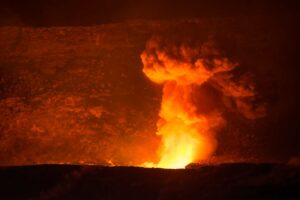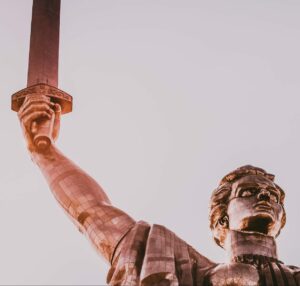Where Were the Carpenters After They Built the Ark?
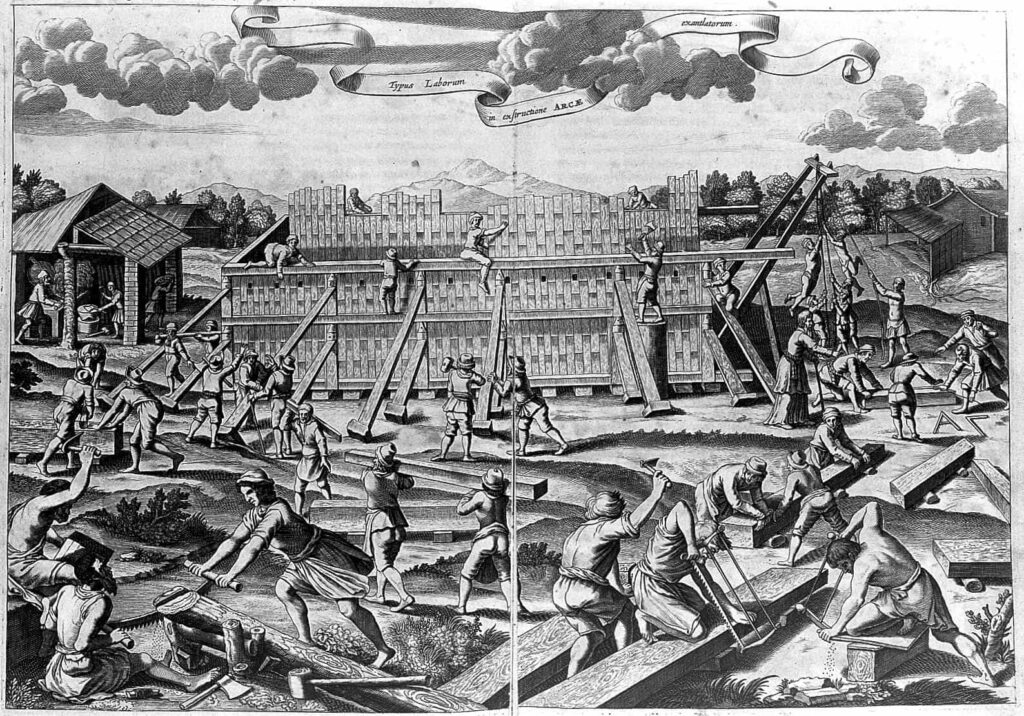
“God said unto Noah, The end of all flesh is come before Me…Make thee an ark…”
Genesis 6:13-14
For almost 6,000 years, God has allowed man to follow his own path to progress by permitting him to bring his principles and methods of accomplishing his goals to full development. By the time of Noah, what was the final outcome of the first sixteen centuries of “progress”? All Earth’s inhabitants had broken entirely free from any moral restraint and become wholly corrupted. Lack of belief in God and disobedience to Him had ruined the moral nature God had given them so much that no hope remained.
All flesh had reached the point where it couldn’t get any worse. So God had nothing left to work with. All He could do was to totally destroy them, saving only the few who were righteous and still obedient to Him. Only one man and his family qualified when the climax of evil had been reached. All the rest of mankind had become devastated. Now God alone could provide the remedy for the future of the human race.
Today man is exposed to a similar situation of danger. The Lord has declared that He’s soon going to call the whole world to judgment for its sins against Him—yet we do not prepare for it in any way.
In fact, many laugh and sneer at the very idea. Nevertheless, God’s wrath is going to fall. Why did God tell Noah “make thee an ark”? Because His sentence of death has been “passed upon all men” (Romans 5:12) already.
But along with the sentence of death, God made a promise of deliverance. Whenever God makes His darkest threats, He always reveals a way of escape. He sent the flood, but also provided an ark. Lot had to flee from Sodom before God destroyed it, but He provided the little city of Zoar for him to escape to. And God warns us today of the penalty for sinning against Him, at the same time providing the message of Christ—that He is full of mercy, unwilling for any to perish.
Noah had a firm belief in what God said He was going to do, in spite of the unbelief everywhere around him. He was in awe of God and had made up his mind to take advantage of any means God might provide to escape the coming wrath. Nevertheless, God did not make an ark and hand it to Noah. Man had to construct it himself from materials of this Earth.
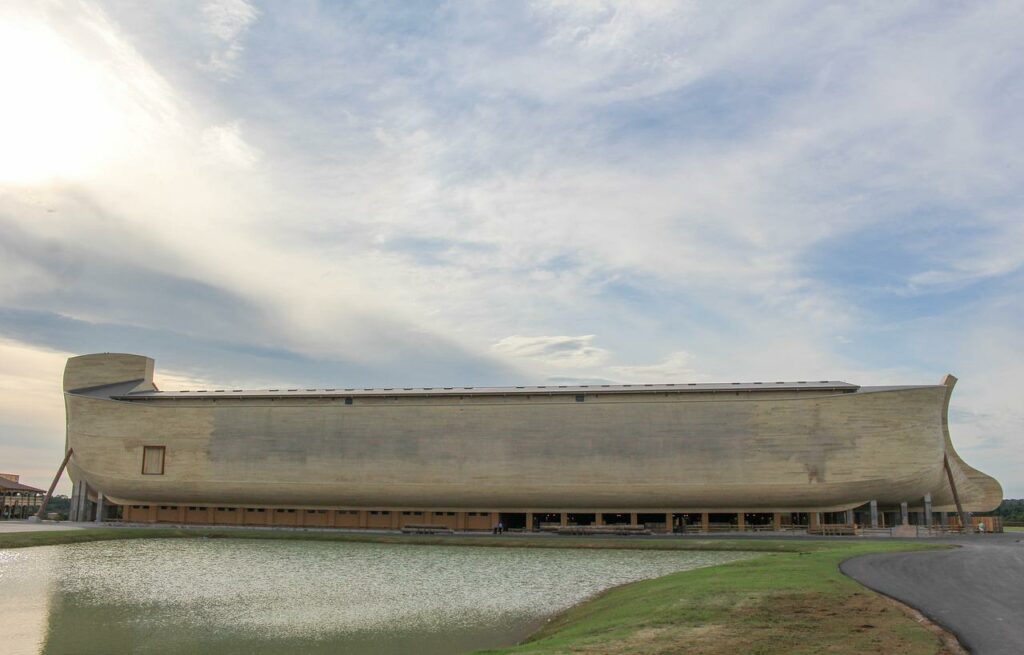
At the same time that other men were chasing after wealth and freely indulging in pleasure and sin, Noah was using his wealth and substance to build the ark. It was a gigantic ship, the largest to that time, about a third of the size of the largest modern aircraft carrier. His holdings must have been sizable to be able to provide enough funds to construct such a monumental project.
Certainly his three sons would have helped build it, but even so, much more manpower would have been needed to complete such an undertaking.
There were men living then who had prospered in just about everything material. Some would have gladly received a contract to work in Noah’s shipyard, all the while having contempt for his reasons for building the ark. But, in spite of their attitude, every time they hit a nail or sawed a board, God provided another chance for them to repent of their man-centered evil ways and come to Him.
God offered all the people a way of safety, of salvation, to see if they would believe Him and accept the only way out. But they were not willing to consider living in an ark for months, because they were not willing to believe that a life-destroying flood was coming. Who would trust the ark to be their salvation if they truly thought they could manage an easier way? The first and hardest step toward helping people to get saved is convincing the careless and the prospering that their way of salvation will not save them. Yet they are not capable of saving themselves.
Noah believed God when He told him a massive flood of destruction was coming for all mankind. He knew he had only two choices: destruction or deliverance. So he took the necessary steps to conduct himself in a way that he would be allowed to escape the coming disaster. We have to obey God’s instructions to us as much as Noah had to obey God’s instructions to him. He had to have an ark built to be saved. But all we have to do today is to get into the Ark God already prepared for us.
Noah’s eyes could not see a flood forming, but his eyes of faith did see, and he believed in the reality of it, more than the reality of all he could touch and see right around him.
This made it possible for him to ignore the endless taunts thrown at him day by day and year by year. The direction his life was going to take was either pure foolishness, or it was more real than anything else at that time. A hundred and twenty years might have passed from God’s warning to Noah until the Flood actually came. Yet Noah held to what he believed God had told him. He did not let his faith waver the whole time. Then he was taken away, just as the very apex of human evil arrived, before God’s judgment had to be poured out.
And what about our faith today? Are we even aware of the coming destruction that looms just ahead? Do we believe God as He forewarns us to come into the Ark of safety? He has provided a similar means of escape for us like He did for Noah. He has provided His only begotten Son as the Ark for all who will believe. They will be able to board the Ark, but it will not remain open for the multitude that refuses to believe. Those people think their own good works will be sufficient to save them, but their works are about as useful as a raft in a flood! Who would be foolish enough to provide himself with just a raft if he knew a monsoon was coming?
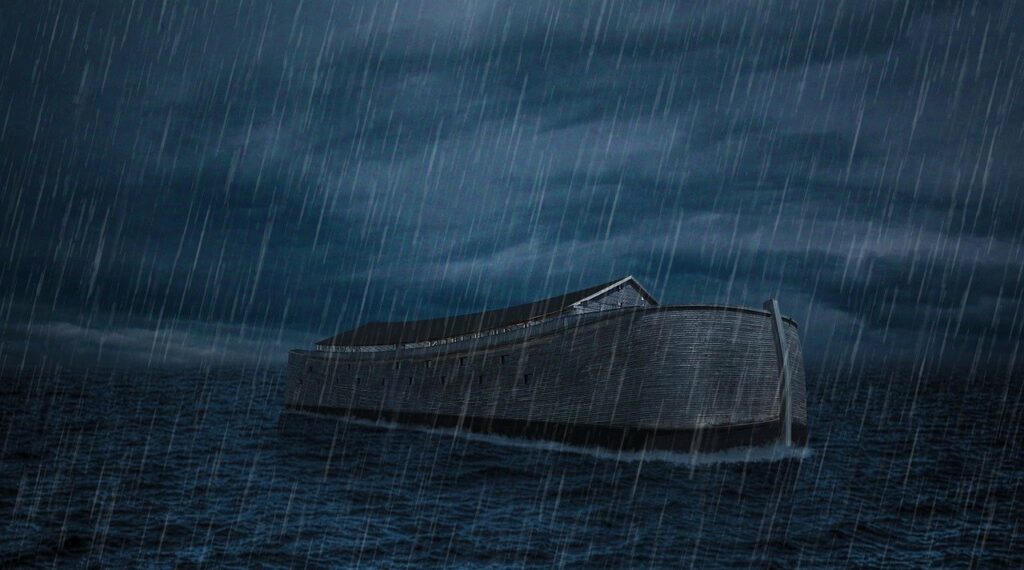
It’s possible that many workmen who signed up to work on the shipbuilding project may not have made fun of Noah. But where were they when Noah went up the ramp into the ark? The neighbors of Noah most likely helped him obey what God had told him to do also. They may have helped make the way of salvation possible, yet they never obeyed God themselves. They also stood watching as Noah and his family went into the ark. What happened to them? Every last one of them drowned in the Flood.
Faithfully building the ark in response to God’s command was one way Noah preached righteousness to those around him. Yet none of them took advantage of his invitation to come aboard and escape the inevitable destruction of themselves and all around them. Even the woodcutters, carpenters, and other builders were ultimately destroyed—because they would not come into the very ark they had built! They failed to consider the future while they worked on the present project. So they ended up outside the ark of safety, and when it was too late, they realized that it had been built for them!
Have you climbed aboard the Ark yourself? You may be one of those who helped build it, yet not be on it when judgment comes! Where were the carpenters after they built the ark?
[Additional image credit: Featured image (when applicable) by Jørgen Deleuran from Pixabay; Opening image from Wellcome Collection.Public Domain Mark]



